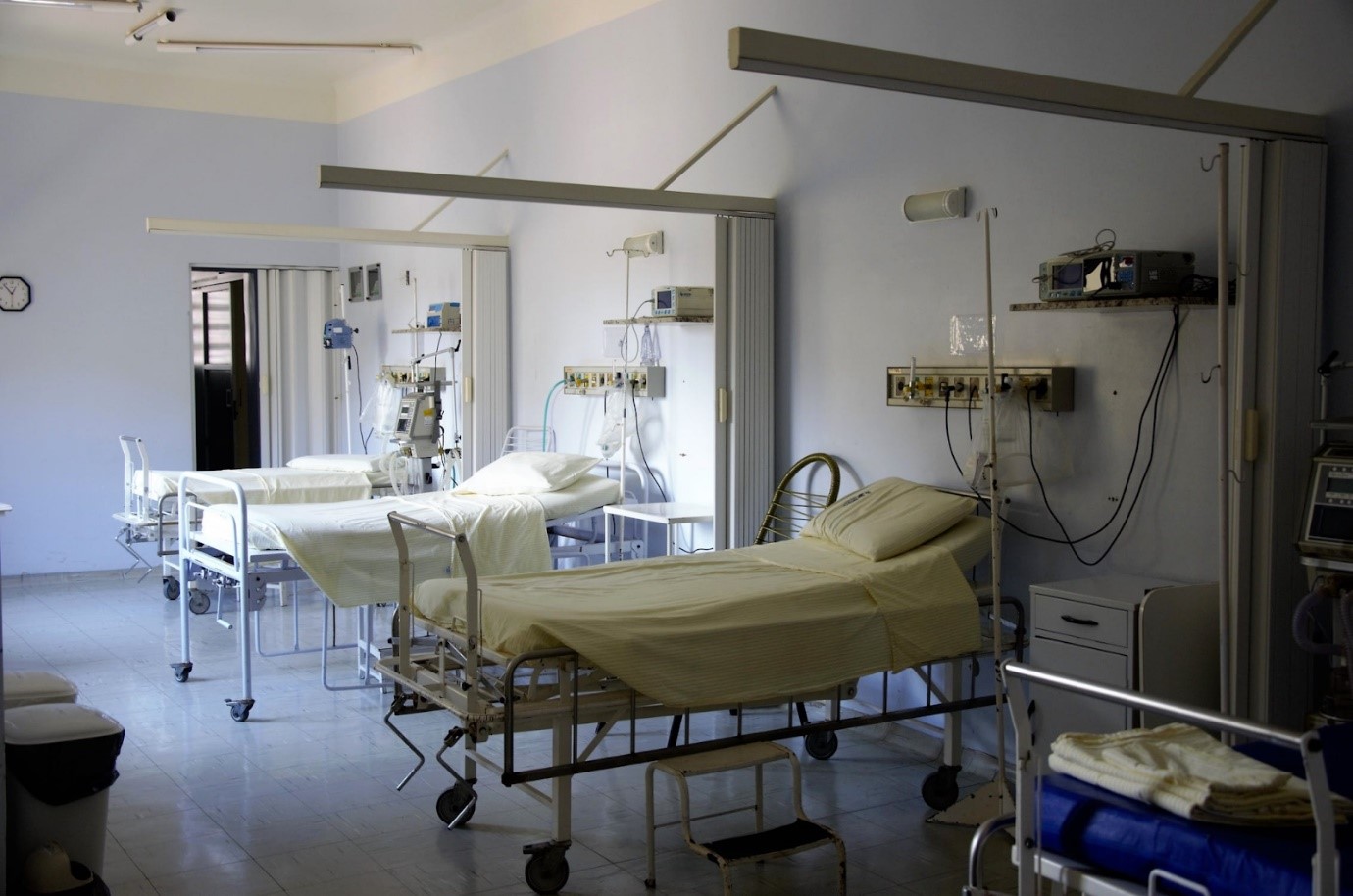Who we cover
- Family health insurance
- Health insurance for over 50s
- Health insurance for over 60s
- Health insurance for over 70s
- Health Insurance for pre-existing conditions
- Self-employed health insurance
- Health insurance for children
- Small business health insurance
- Comprehensive health insurance
- Couples health insurance
- Corporate health insurance
- International health insurance
- Family health insurance
- Health insurance for over 50s
- Health insurance for over 60s
- Health insurance for over 70s
- Health Insurance for pre-existing conditions
- Self-employed health insurance
- Health insurance for children
- Small business health insurance
- Comprehensive health insurance
- Couples health insurance
- Corporate health insurance
- International health insurance
- Health Hub
- About us
- Contact Us
What is GP referral?
20.01.2022 ∙ Roman Danaev ∙ 10 min read
General Practitioners (GPs) offer a wide variety of health services for all common medical conditions. But, they may also recommend specialist treatment and refer you to a specific hospital for a more specialised assessment. This is when your doctor will make a referral. A GP referral is a written letter addressed to another healthcare professional.
The letter lists your symptoms, test results, medical history, and why you’re being referred.
Our insurers
Read thorough guides about health insurance in our Healthhub! We write guides for people to help them pick the best medical insurance in the UK and take care of their health
Is gp referral required for private treatment and insurance?
According to the NHS, no. You don’t need a referral to get private treatment from a consultant or a specialist. However, the British Medical Association (BMA) believes that it is best for a GP to refer patients who need special treatment.
Moreover, many private practitioners and medical insurance policies require a referral. You can ask your insurer whether you need a referral for private medical insurance.
What type of cover are you looking for?
You
Couple
Family
Business
How is a gp referral made?
Your general practitioner will write you a letter of referral at your request or if they deem it necessary. You usually need to make an appointment to get a referral.
A referral is written with the following relevant information:
- Name of the Receiving Hospital or Doctor. Many referrals are to outpatient clinics and a general department. GPs sometimes don’t refer to an individual consultant in the hope that their patients get on the shortest waiting list.
- Diagnosis. This includes all results from the tests you’ve conducted with your GP. It will be the basis of the referral.
- Medical History. Any relevant medical conditions, such as allergies and recent and related diseases, should be mentioned
- Reason for Referral. The medical reason behind the referral should be described concisely and clearly. Lastly, the letter must be signed by your general practitioner or any medical practitioner you visited.
Importance of a gp referral
A person needs a referral for specialist treatment at an NHS hospital, a private hospital, or to visit any other medical specialist.
It’s also important as your GP has all your medical records and has in-depth knowledge about your medical history and treatments.
Can I choose whom I see for treatment?

It’s not common knowledge, but you should be offered a list of consultants by your GP.
There’s a vast inconsistency with using the common Choose and Book referral system across the UK. But, if your general practitioner states you need to see a specialist, you must be given at least four hospitals or other treatment centres that offer the medical help and care you need.
Most hospitals are under NHS, but you can also be referred to:
- Private Hospitals
- Foundation Trust (NHS hospital with more management freedom)
- Independent Sector Treatment Center
If your GP refers you to the NHS, the NHS will pay for your treatment even if you go to a private hospital or independent sector treatment centre. This is why you should choose a GP wisely.
What is the choose and book referral system?
Choose and Book is a secure electronic booking system provided by the NHS. GPs can use this to make referrals. With Choose and Book, you can make your appointment during your general practitioner consultation. You can also do this after, on the phone, or online.
You can choose the hospital or clinic you want to attend. You can choose a convenient date and time for your first outpatient appointment.
How to make the best choice?
Your general practitioner should give you a “Choosing Your Hospital” booklet. It contains details about hospitals and their scores for waiting times, MRSA, and patient care. If still undecided, you can ask your GP for suggestions. GPs know many local consultants, centres, and local hospitals.
You can opt to book your appointment later by:
- Visiting the main Choose and Book website
- Contacting the NHS Appointments line
- Contacting your preferred hospital directly
What happens if my doctor doesn’t provide options?
Most of the time, you won’t be able to choose your preferred consultant. Some of the reasons are:
- You can’t choose your consultant for pregnancy or mental health-related issues.
- If your general practitioner concludes that your condition requires immediate treatment, you’ll be referred to the local hospital or clinic that can treat you the fastest.
- The local hospitals aren’t linked to the Choose and Book system.
How long is the waiting time for an appointment?
For your hospital treatment, the waiting time may vary. But, it shouldn’t be more than:
- 18 weeks if it’s your first outpatient appointment
- One month after a cancer diagnosis to treatment
- Six months for inpatient treatment
- Two months from the referral for suspected cancer to treatment
- Two weeks in specialist chest pains clinic for chest pains and suspected angina
- Two weeks for urgent referral for suspected cancer
Generally, any patient must have a guaranteed 18 weeks maximum waiting time between the referral and the start of treatment.
What happens next?
After your GP hands over the referral, they should be able to give you ideas on how long it will take. This may change because of circumstances beyond their control, like outpatient clinic cancellations or the consultant falling ill.
If you still haven’t heard anything from the hospital, you can contact its outpatient department and ask about your expected waiting time. If you still can’t find out, try calling the doctor’s surgery.
While waiting for the date of your appointment, your hospital doctor will manage your condition. They might try to speed up your appointment or change the date if it worsens.
What happens after the consultant appointment?
After your appointment, your doctor will send back a letter of their findings to your GP.
Delays can lead to complications for you and your GP, especially if you’ve been recommended new medications. In cases like this, you or your GP will have to call the hospital again and get the information.
Will my doctor get paid for referrals?
Yes, doctors can receive payments for referrals. However, there are strict laws about getting kickbacks from referrals. It’s because the referral system makes patients seem like commodities.
What to do if I have private health insurance?
Your insurance company will usually need a doctor’s referral. Some companies might accept GP referrals to any specialist, while others have their own list of consultants. So if you have insurance like this and need a specialist assessment, check your policy to find out:
- If your company accepts GP referrals or have their own consultants list
- If your policy covers your required treatment
- When to contact your company to inform them about your referral
If a GP referral is accepted, schedule to meet your GP as soon as possible.
If you claim treatment under your private medical insurance, your doctor might complete some of the claim forms for you. You can also ask your GP or an NHS doctor to complete the form.
Summary
A GP referral is a request from your GP to another specialist to assess your health further. It’s done for many reasons, such as the need for specialist treatment. Your GP can send you to the appropriate consultant, or you can decide on your own through the Choose and Book system.
If you have private health insurance, always remember to check your policy regarding referrals. Overall, a GP referral’s purpose is to help you get the medical help and care you need, so feel free to ask for updates if there’s a delay during the process.
Latest articles

The cost of small business health insurance in 2022
Both individual and corporate health insurance is expensive. However, it's important to protect your employees' physical and ...
Learn more

How to get a doctor's appointment: Read on to find out
It's very important to know exactly what to do when you have a health problem, especially in case of ...
Learn more

Why do companies offer health insurance benefits?
When starting or running a small business, it’s important to make sure you have the resources necessary to keep ...
Learn more
Related articles

What does GP referral mean?
A GP referral is a letter from your GP, which is addressed to a specialist with a narrow specification. Your GP explains the reasons for referring you and provides medical data. You can get three types of referrals: hospital, out of hospital, and self-referrals. After, you'll be contacted directly about your appointment via email or telephone.
What happens when a doctor refers to you?
The doctor analyzes all your medical records, examines you further if necessary, and decides which specialist to refer you to.
What to do after you get a referral?
Typically, you will be provided with a list of specialists to choose from. You can make your appointment and wait for it. Then you will continue your treatment with another specialist.
Who is responsible for making a referral?
Your GP is responsible for making a referral. It’s the specialist who has in-depth knowledge about your conditions and can make a prudent referral.
Why is a GP referral important?
A GP referral is important because it allows you to get quality care from a specific doctor. A patient can’t decide who to make an appointment with because they don’t have enough knowledge and specialization.
Contact Us
Address
Lumiere House, Elstree Way, Borehamwood, WD6 1JH
Phone
020 3318 2328
contact@healthplan.co.uk
Business hours
Monday to Friday (8am - 7pm) and Saturday (9am - 6pm).
Have a any questions?
Speak to a real person!






